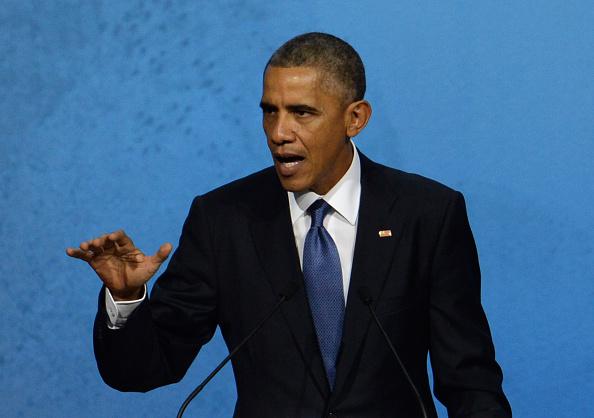Much of the discussion of last Tuesday’s election results has addressed voters’ ongoing dissatisfaction with what, by the numbers, is an improving economy. Commenters like Slate’s William Saletan noted that Republicans won by using liberal-sounding economic rhetoric to play on income-stagnation angst. President Obama talked about the issue in a press conference, citing the dearth of high-wage jobs amidst the recovery. Today Josh Marshall of the progressive news and commentary site Talking Points Memo and Derek Thompson of the Atlantic poke deeper into the issue. They really poke the heck out of the issue, I tell you!
Marshall’s piece is in part about political messaging. He argues, as others have, that “income inequality” is not a compelling phrase in an aspirationally capitalist country that does not particularly loathe rich people simply because they are rich. He says that while it’s true that the wealthy aren’t suffering from stagnating incomes and standards of living the way everyone else is, there’s no advantage to be gained by pointing that out. To paraphrase, he believes that Democrats would be best advised to talk directly to voters whose quality of life has flattened out—the 99 percent—without acknowledging that the 1 percent exists.
But the bigger problem, he argues, is that the Democrats’ policy agenda, aside from proposing minimum wage increases, isn’t particularly built to help the 99 percent.
But what are the policies that would change this corrosive trend? And how do you run on them as a party if you don’t know what they are? Minimum wage increases help those at the very bottom of the income scale and they have a lifting effect up the wage scale as the floor gets pushed up. But it is at best a small part of the puzzle. Clamping down on tax dodges by the extremely wealthy claws back some resources for the treasury and sends an important message, as might some restrictions on ridiculously high CEO pay. But again, these are important changes at the margins that do not fundamentally change the equation. Economic populism or another comparable politics with a different tonality won’t get you very far if you can get beyond beating up on the winners to providing concrete improvements to those losing out in today’s economy.
Marshall’s argument—that the Democrats haven’t proposed a structural solution to inequality—dovetails with Thompson’s Atlantic piece, which explains how an economy can grow without the participants in that economy getting paid more. Basically: The industries on the rise in America are the ones that create crap service jobs, while the country’s more sustainable manufacturing-type companies are focused on growth and hiring abroad rather than here.
“It may seem counterintuitive that wages and salaries are growing the slowest in industries where jobs are growing the fastest, but it actually is not,” writes LaVaughn M. Henry, vice president of the bank’s Cincinnati branch. We’re adding few jobs in goods-producing industries like manufacturing, which have the highest overall post-recession wage growth, and lots of jobs in service-producing industries (e.g. health care, leisure and hospitality, and education), which have the lowest real wage growth.
To Marshall’s point about the party’s platform and Thompson’s point about the causes of flat living standards, a hypothetical Democrat might suggest spending more money on public works and green energy projects, giving service-worker unions power to negotiate better wages and benefits, and increasing funding for the public schools that prepare students to eventually work at (and create) higher-paying, skill-intensive jobs. Obama has in fact already signaled that the first item on that list is a priority for him. What else Democratic politicians propose over the next two years—and whether average-Joe voters receive their proposals as welcome help for hardworking Americans or as socialist giveaways for layabout welfare leeches—is no doubt an issue that the party’s 2016 presidential contenders are keeping a close eye on.
